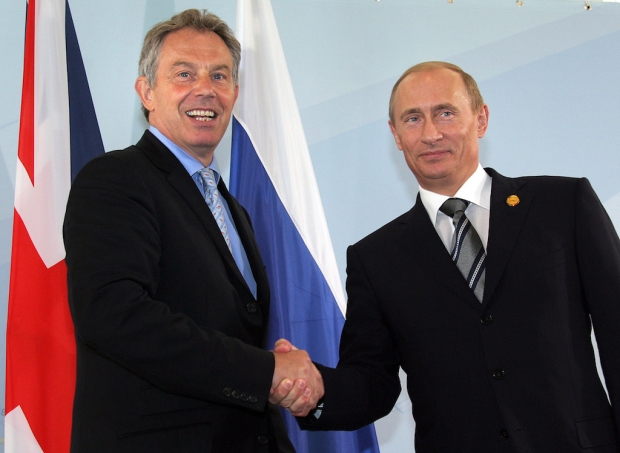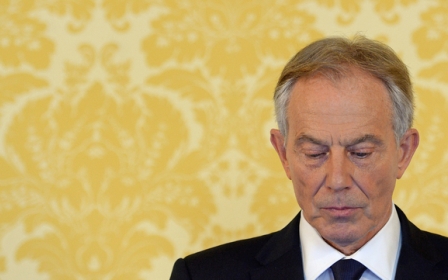Tony Blair: Let's work with Russia against 'radical Islam'

Tony Blair has reiterated a call for the West to ally with Russia to fight the threat of "terrorism".
Speaking at Chatham House in London on Wednesday about the dangers posed by "populism of the left and the right", the former UK prime minister said that although there would always be "disagreements" with Russia and its president Vladimir Putin, the need to tackle militant activity made cooperation necessary.
"On the Middle East, on fighting terrorism, yes, we will have to ally with Russia, but that's not to say we aren't prepared to have powerful and strong disagreements with them when they're doing things we don't agree with and can't agree with," he told the audience.
"This is why always with Russia we'll be having disagreements, which will be very ugly and difficult from time to time, but we'll always be wanting to deal with them at a certain point - which is why we need to be careful how we approach the relationship."
The relationship between Blair and Putin goes back to the latter's first election as president in 2000. Putin visited the then British prime minister at Number 10 Downing Street shortly after his election, despite criticism over human rights abuses in the war in Chechnya.
Russia's relationship with the UK has deteriorated drastically in recent months after the apparent attempted assassination of Russian former spy Sergei Skripal and his daughter Yulia by a nerve agent in the city of Salisbury in March.
Although Russia denies being behind the failed attempt on Skripal's life, the UK expelled 23 Russian diplomats in retaliation.
During his speech, which focused on the fallout from the collapse of faith in globalisation, he warned against isolationism and the allure of authoritarian strongmen.
“Globalisation and its advocates are on the back foot. Populism of left and right meet at a certain point in denunciation of free trade arrangements, migration and international alliances. All are portrayed as contrary to putting individual national interest first," he said.
“Once it is clear the populism isn’t working because, ultimately, it offers only expressions of anger and not effective answers, the populists may double down, alleging that failure is the result of half-heartedness and that only more of the same will work.
“Who knows where the dynamic of that scenario takes us. Then the comparisons with the 1930s no longer seem far-fetched.”
He added that while he was critical of US President Donald Trump's protectionist policies, he said it was misguided to oppose his visit to the UK on 13 July as it was important to maintain good relations with the US.
Russia has been aiding its long-term ally Syrian President Bashar al-Assad in fighting rebel groups in Syria, whom both Russia and Assad have branded "terrorists".
Russian air strikes have been crucial in preventing the overthrow of Assad's government after Moscow intervened in the country in September 2015.
Hundreds of thousands of people have been killed in Syria since protests against Assad's government in 2011 were met by violent force.
Since then, the country has seen the rise of the Islamic State (IS) group and groups aligned to al-Qaeda, raising fears about the country becoming a base for international militant groups.
Blair has previously stressed the need for the West to work with Russia to crack down on militant groups. Speaking at the headquarters of Bloomberg in April 2014 - a month after Russia forcibly annexed the Crimean Peninsula - he said the threat of "radical Islam" was such that ''on this issue, whatever our other differences, we should be prepared to reach out and cooperate with the East, and in particular Russia and China''.
In the speech, he also defended the July 2013 coup in Egypt which saw Muslim Brotherhood-backed president Mohamed Morsi ousted by the military, warning that the Brotherhood had been ''systematically taking over the traditions and institutions of the country''.
''The revolt of 30 June 2013 was not an ordinary protest. It was the absolutely necessary rescue of a nation. We should support the new government and help,'' he said at the time.
Stay informed with MEE's newsletters
Sign up to get the latest alerts, insights and analysis, starting with Turkey Unpacked
Middle East Eye delivers independent and unrivalled coverage and analysis of the Middle East, North Africa and beyond. To learn more about republishing this content and the associated fees, please fill out this form. More about MEE can be found here.





